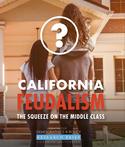The United States is rated as the world’s most competitive economy according to the Global Competitiveness Report 2018, which is published by the World Economic Forum (WEF). The World Economic Forum sponsors the well publicized and invitation only annual meeting at Davos, in the Swiss Alps each winter. read more »
Demographics
United States Is The Most Competitive Economy: World Economic Forum
- Login to post comments
One Nation, Two Economies
Almost all news coverage of the current election season has focused on cultural issues such as gender, race, and immigration. What the media have missed are deep socioeconomic trends driving parts of the country in divergent political directions. President Trump has overseen a significant transformation in the geography of the nation’s growth and prosperity. Instead of clustering along the coasts—as many progressives may have preferred—the nation’s economic expansion is now increasingly benefiting red states, notably in the southeast, Texas, and the intermountain West. read more »
- Login to post comments
Inputs vs. Outputs
An article in CityLab purports to show “why public transit works better outside the U.S.” However, it never actually demonstrates that public transit does work better in other countries; it merely shows that governments have attempted to make it work better. read more »
- Login to post comments
The American Republic Has Lost Adult Supervision
The ship known as the American Republic sails on, but its crew is made up of irresponsible and vicious children cast from “Lord of the Flies.” Prisoners of their own emotions, they increasingly seem impervious to the notion that their gyrations might topple their own vessel. read more »
- Login to post comments
California Feudalism: The Squeeze on the Middle Class
Is the California Dream unraveling? Joel Kotkin and Marshall Toplansky warn how California is headed towards an increasingly feudal future in their latest report, "California Feudalism: The Squeeze on the Middle Class." Click the PDF link below to read the full study. read more »
- Login to post comments
Middle East Cities Should Look Forward—and Back
The Middle East may well be the birthplace of cities, and maybe capitalism itself, but for the most part, it continues to lag in developing a modern, workable urbanism. Yes, the region has produced high-tech hubs (e.g., Tel Aviv) and postmodern cities (e.g., Dubai), which can be regarded as rising international business centers, but it’s also home to megacities afflicted by mismanagement, poor planning, and some of the world’s highest unemployment rates. read more »
- Login to post comments
Length of Residential Tenure: Metropolitan Areas, Urban Cores, Suburbs & Exurbs
America is becoming less mobile than in the past, but there are some major metropolitan areas --- and areas within them --- that have fewer people move in and out than others. US households tend to live longer in their present residences where population growth has been more modest. The data also indicates that across all major metropolitan areas, households tend to have lived longer in suburbs and exurbs than in the urban core. read more »
- Login to post comments
California Ranks #1 In Sending Dollars Abroad For Energy
The USA is now a net exporter of crude oil, with crude oil exports exceeding imports. This oil boom is beneficial to 49 states, but not to California. The American shale boom has important security implications as well, as America is now less dependent on crude oil from the turbulent Middle East, again, except for California.
Even more impressive is the fact that the U.S. has now overtaken Saudi Arabia in recoverable oil reserves. read more »
- Login to post comments
California Becoming More Feudal, With Ultra-Rich Lording Over Declining Middle Class
In the imaginations of its boosters, and for many outside the state, California is often seen as the role model for the future. But, sadly, California is also moving backward toward a more feudal society.
Feudalism was about the concentration of wealth and power in a relative handful of people. Historically, California created fortunes for a few, but remained a society with enormous opportunity for outsiders, whether from other states or countries. read more »
- Login to post comments
How Many Really Commute by Transit?
According to the 2017 American Community Survey, about 7.6 million Americans, or 5.3 percent of commuters, take transit to work. However, the actual question on the survey asks, how do you “usually get to work last week.” If someone took transit three days and drove two, then transit gets checked. So how many really use transit on any given day? read more »
- Login to post comments





















